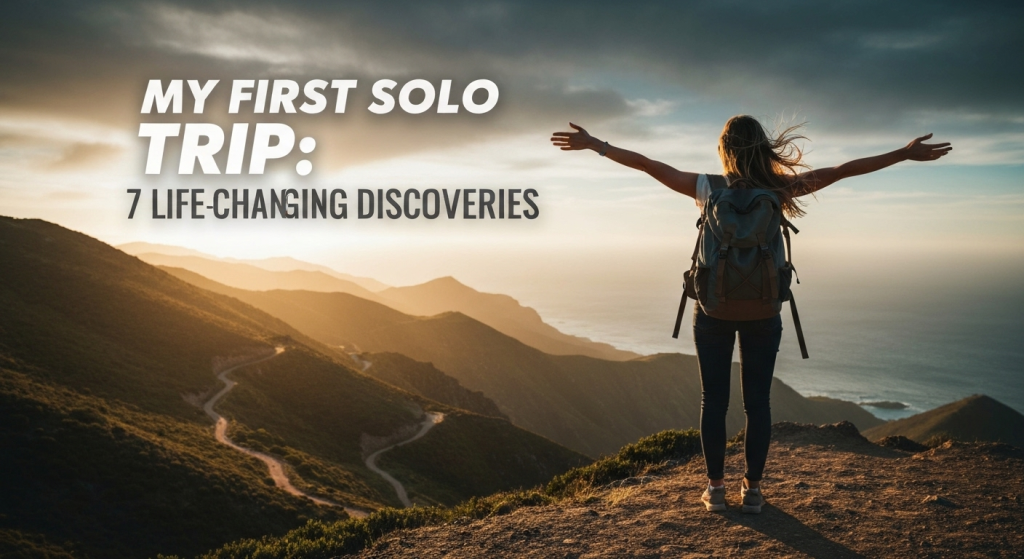Solo travel teaches you more about yourself in a week than years of regular life ever could. After five years of helping others plan their adventures as a travel consultant, I finally took my own leap into the unknown. That first solo journey to Thailand revealed truths about my character I never knew existed.
My name is Mahnoor Farooq, and I’ve spent half a decade guiding travelers through their biggest adventures. Yet nothing prepared me for what I’d discover about myself when I stepped off that plane in Bangkok, completely alone for the first time in my adult life. The lessons hit me like waves – some gentle, others overwhelming, but all transformative.
Why Solo Travel Feels Scary (But Shouldn’t)
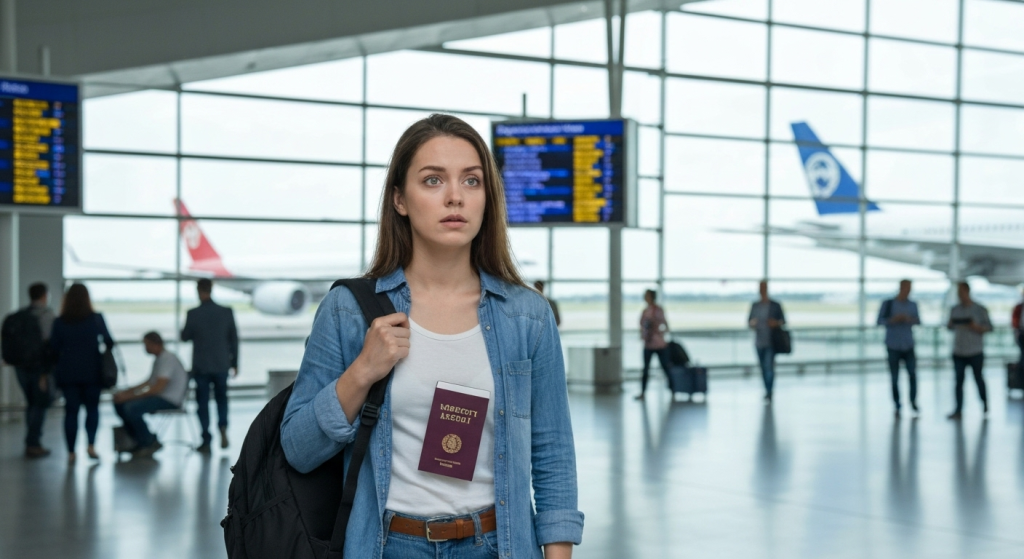
Most people avoid solo travel because it feels risky. Your mind creates stories about danger, loneliness, and worst-case scenarios. I spent months convincing clients to take the leap while secretly terrified of my own solo adventure.
Here’s what actually happens: your brain adapts faster than you think. The fear dissolves within hours of arrival. You realize you’re more capable than you ever imagined.
The travel industry shows us couples holding hands on beaches and friend groups laughing in cafes. Solo travelers get pushed to the margins. This creates false beliefs about what travel should look like. Reality tells a different story.
Common Solo Travel Fears vs Reality
| Fear | Reality |
|---|---|
| I’ll be lonely and isolated | You meet more people traveling alone |
| It’s dangerous for solo travelers | Statistics show solo travel is remarkably safe |
| I’ll have no one to share experiences | You learn to appreciate moments differently |
| Restaurants won’t seat single diners | Most places welcome solo guests warmly |
The Seven Life-Changing Discoveries
1. You’re Stronger Than You Think
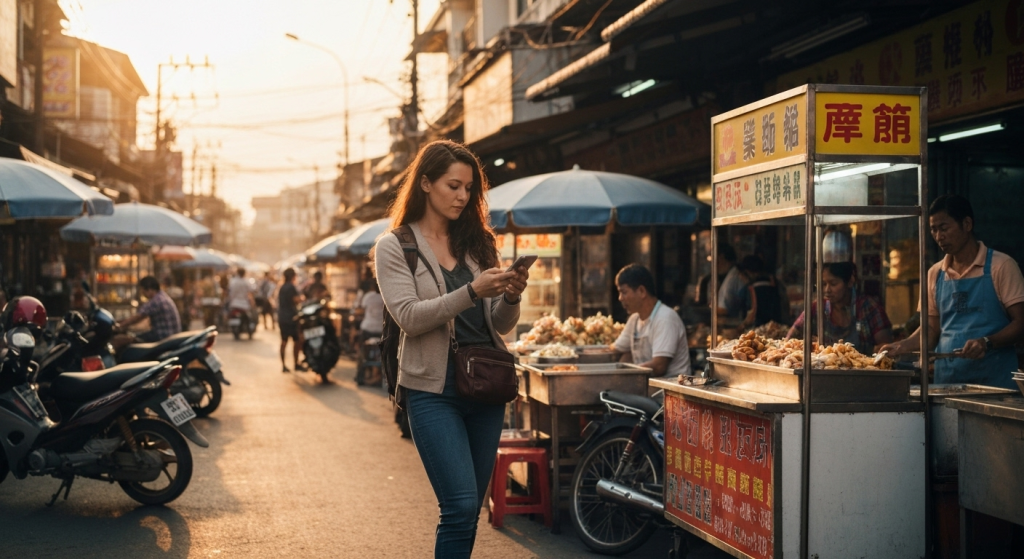
My flight got delayed in Dubai. My connecting flight left without me. I sat in the airport at 2 AM with no hotel booking and limited Arabic. Three years ago, I would have called my parents crying.
Instead, I found myself problem-solving. I negotiated with airline staff. I booked a nearby hotel using broken English and hand gestures. I even helped another stranded traveler find accommodation. The situation that should have broken me became my first victory.
Solo travel strips away your safety nets. You can’t rely on others to make decisions or solve problems. This forces you to discover inner strength you forgot you had. Every challenge becomes proof of your capability.
Most people go through life avoiding discomfort. We call friends when we’re lost. We let others handle difficult conversations. Solo travel removes these crutches. You learn to trust yourself completely.
2. Solitude and Loneliness Are Different Things
I always confused being alone with feeling lonely. My first morning in Chiang Mai, I sat in a cafe watching sunrise paint the mountains gold. No one to share it with, but I felt completely content.
Loneliness comes from disconnection – from others and yourself. Solitude creates space for connection with your own thoughts and feelings. You stop needing constant external validation or entertainment.
During my temple visits, I spent hours in quiet reflection. No Instagram photos to take. No friend’s opinions to consider. Just me, ancient stone walls, and profound silence. Those moments taught me the difference between being alone and being lonely.
Western culture treats solitude like a problem to solve. We fill every moment with noise, people, or distractions. Solo travel forces you to sit with yourself. Many people can’t handle this at first. The discomfort passes quickly.
3. Your Comfort Zone Is Smaller Than You Thought
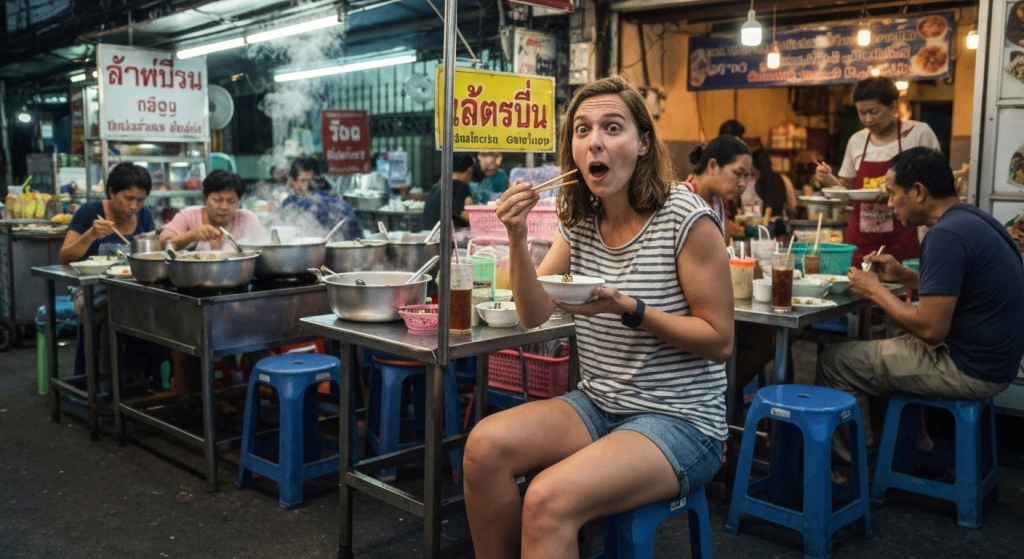
Back home, I considered myself adventurous. I tried new restaurants and took weekend trips. Solo travel showed me how tiny my actual comfort zone was.
Ordering street food in Bangkok when you don’t speak Thai requires courage. Navigating tuk-tuks through crazy traffic tests your nerves. Staying in hostels with strangers pushes social boundaries. Each day brought situations that would have terrified me at home.
The magic happens when you realize these scary situations become normal within days. Your comfort zone expands rapidly when you stop avoiding discomfort. What feels impossible on day one becomes routine by day three.
Comfort Zone Expansion Stages
| Stage | What Happens | Timeline |
|---|---|---|
| Resistance | Everything feels scary and overwhelming | Days 1-2 |
| Adaptation | You start finding your rhythm | Days 3-5 |
| Confidence | New challenges feel manageable | Week 2+ |
| Mastery | You actively seek growth opportunities | Month 2+ |
4. You Make Friends Easier When You’re Alone
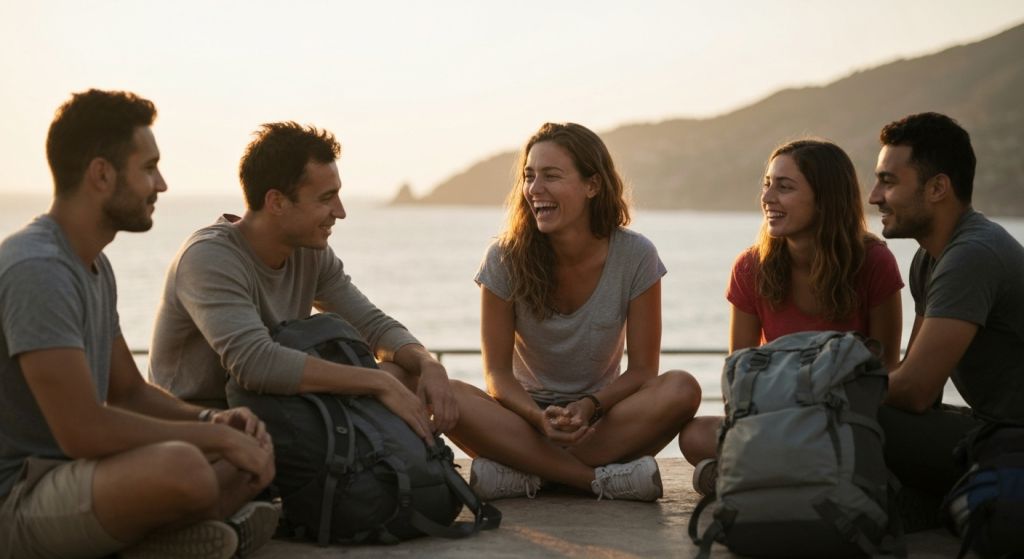
Groups create barriers. Couples stick together. Friend groups form closed circles. Solo travelers naturally attract other solo travelers and friendly locals.
My hostel in Koh Phi Phi became a temporary family. Sarah from Australia, Miguel from Brazil, and Tom from Germany adopted me into their island-hopping plans. We explored hidden beaches and shared stories late into the night.
Local people approach solo travelers more easily too. Mr. Somchai, an elderly Thai man, invited me to his family dinner simply because I looked approachable sitting alone. That meal became one of my trip’s highlights.
When you travel alone, you signal openness to new connections. People feel less intimidated approaching one person than interrupting a group. Your vulnerability becomes your superpower for making authentic friendships.
5. Decision Fatigue Is Real (And Liberating)
At home, I agonized over restaurant choices with friends for thirty minutes. Solo travel forced me to make hundreds of decisions daily. Where to eat, what to see, which direction to walk, when to rest.
Initially, this felt overwhelming. By day four, decision-making became effortless. I learned to trust my instincts and accept that most choices don’t matter as much as we think. Wrong turns often lead to the best discoveries.
The freedom to change your mind without consulting anyone feels intoxicating. Want to skip the planned museum for a cooking class? Done. Feel like staying an extra day in a city you love? Book it. This flexibility transforms how you approach life decisions.
Decision fatigue teaches you which choices actually matter. Most don’t. The restaurant you pick won’t change your life. The courage to pick any restaurant will.
6. You Don’t Need Much to Be Happy
My backpack contained everything I owned for three weeks. Two pairs of jeans, five shirts, basic toiletries, and electronics. That’s it. I lived comfortably and felt completely free.
Home life accumulates stuff without conscious choice. Closets overflow with clothes you never wear. Drawers collect gadgets you forgot existed. Travel shows you how little you actually need for happiness and comfort.
The weight of possessions extends beyond physical clutter. Every item you own requires mental energy to maintain, organize, and worry about. Reducing to essentials creates mental clarity I never experienced before.
Minimalist Travel Essentials vs Home Excess
| Travel Essentials | Home Reality | Actual Usage |
|---|---|---|
| 5 versatile shirts | 30+ shirts in closet | Use same 8-10 regularly |
| 2 pairs of comfortable shoes | 15+ pairs collecting dust | Wear 3-4 pairs regularly |
| 1 jacket for all weather | 8 coats for different occasions | Reach for same 2 always |
7. Your Problems Aren’t as Big as They Seem
Distance creates perspective. Work stress that consumed my thoughts for months seemed trivial from a Thai beach. Relationship drama that felt life-ending looked manageable from mountain peaks in northern Thailand.
Travel doesn’t magically solve problems, but it shrinks them to proper size. You realize most worries exist only in your mind. The world keeps spinning regardless of your current crisis.
Meeting people with real struggles puts your first-world problems in context. The street vendor working sixteen-hour days to feed his family doesn’t stress about social media likes or career advancement. His problems are immediate and concrete. Mine were mostly imaginary.
Practical Tips for Your First Solo Adventure
Choosing Your Destination
Start with English-speaking countries or places with strong tourist infrastructure. Thailand, New Zealand, and Portugal offer perfect combinations of safety and adventure for beginners.
Consider your personality type. Introverts might prefer quieter destinations like Japan or Iceland. Extroverts thrive in social hubs like Barcelona or Buenos Aires. Match the destination to your energy levels and interests.
Research cultural norms beforehand. Understanding basic etiquette prevents embarrassing mistakes and shows respect for local customs. This preparation builds confidence for cultural interactions.
Safety Without Paranoia
Share your itinerary with trusted friends at home. Check in regularly but don’t feel obligated to report every movement. Technology makes staying connected easier than ever.
Trust your instincts about people and situations. Your subconscious picks up on warning signs faster than your rational mind. If something feels wrong, leave immediately.
Learn basic phrases in the local language. “Help,” “police,” and “hospital” could save your life. Most locals appreciate the effort even if your pronunciation is terrible.
Essential Safety Measures
- Register with your embassy in high-risk destinations
- Keep copies of important documents in separate locations
- Research common scams specific to your destination
- Know local emergency numbers and nearest hospital locations
- Pack a basic first-aid kit with personal medications
Managing Money and Documents
Spread your money across multiple sources. Cash, cards, and digital payment apps provide backup options if one fails. Notify banks about your travel dates to prevent card blocks.
Scan important documents and email them to yourself. Upload copies to cloud storage for access anywhere. Keep physical copies separate from originals in your luggage.
Budget for unexpected expenses but don’t obsess over every dollar. Solo travel often costs more than group travel due to single supplements and lack of cost-sharing. Plan accordingly.
Common Solo Travel Mistakes to Avoid
Over-Planning Your Itinerary
Rigid schedules kill spontaneity. Leave gaps in your plans for unexpected discoveries and rest days. The best travel experiences often come from unplanned detours.
Book your first few nights’ accommodation in advance for peace of mind. After that, maintain flexibility to extend stays in places you love or leave quickly from places you don’t.
Avoiding All Risks
Calculated risks create the best memories. Trying street food, taking local transport, or exploring off-the-beaten-path locations adds richness to your experience.
The goal is intelligent risk-taking, not reckless behavior. Research beforehand, trust your instincts, and be prepared for Plan B if things go wrong.
Comparing Your Trip to Others
Social media creates unrealistic expectations about travel. Everyone posts highlight reels, not the boring or difficult moments. Your experience is unique and valuable regardless of how it looks online.
Focus on your own journey instead of collecting photos for social proof. The most meaningful travel moments often can’t be captured in pictures anyway.
How Solo Travel Changes Your Daily Life
Increased Self-Reliance
You stop waiting for others to make plans. Weekend activities happen because you decide they should. You become the author of your own experiences rather than a passive participant in others’ plans.
Decision-making improves dramatically. The practice of choosing everything from meals to routes builds confidence for bigger life decisions. You trust your judgment more completely.
Better Relationships
Paradoxically, learning to be alone improves your relationships with others. You stop using people to fill emotional voids or avoid uncomfortable feelings. Relationships become choices rather than desperate needs.
You also become more interesting. Solo travel provides endless stories and perspectives that enrich conversations. People are drawn to those who have pushed their own boundaries.
Career Benefits
Solo travel develops skills employers value. Problem-solving, adaptability, cultural sensitivity, and confidence all transfer to professional environments. These experiences often become compelling interview stories.
The confidence gained from navigating foreign countries alone translates to workplace challenges. If you can handle a crisis in rural Vietnam, office politics feel manageable.
Frequently Asked Questions
Q: Is solo travel safe for women? Yes, with proper precautions. Millions of women travel solo safely each year. Research destination-specific concerns, trust your instincts, and stay connected with home base. Many destinations are actually safer for solo female travelers than popular media suggests.
Q: How do I deal with loneliness while traveling alone? Stay in hostels or social accommodations where meeting people happens naturally. Join group tours or activities for instant social connections. Remember that feeling lonely occasionally is normal and temporary – it doesn’t mean you’re doing anything wrong.
Q: What if I get sick or injured while traveling alone? Pack a comprehensive first-aid kit and know basic self-care. Research healthcare options at your destination before you need them. Travel insurance is essential – it covers emergency medical care and evacuation if necessary.
Q: How much should I budget for my first solo trip? Budget varies dramatically by destination and travel style. As a general rule, add 20-30% to what you’d spend traveling with others due to single supplements and lack of cost-sharing. Start with a shorter trip to test your spending patterns before committing to longer journeys.
Your Solo Journey Starts Now
Solo travel isn’t about proving anything to anyone else. It’s about meeting the person you become when stripped of familiar environments and support systems. That person is stronger, more creative, and more resilient than you imagine.
My first solo trip happened five years into my career helping others travel. I thought I understood the transformative power of travel from observing my clients. I was wrong. Understanding solo travel and experiencing it are completely different things.
The seven discoveries I’ve shared barely scratch the surface of what you’ll learn about yourself. Each person’s journey reveals different truths. Your revelations will be uniquely yours, shaped by your background, fears, and dreams.
Start planning that trip you’ve been postponing. Choose a destination that excites and slightly scares you. Book the ticket before you can rationalize why you should wait. Your future self will thank you for the courage to begin.
The world is waiting to show you who you really are. All you have to do is show up alone and pay attention.

